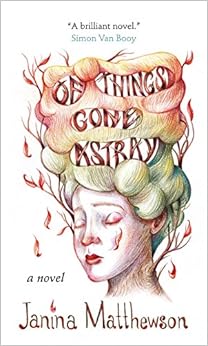#744. Kokoro by Natsume Soseki, translated by Edwin McClellan. Apparently an important book in Japanese literary history.
But man, I really don't like Sensei. The entire time, all he does is wallow in self pity and act all high and mighty about his "experiences" when he's the worst of them all. On top of his inability to grow a pair EVER, he kept subtly talking down on women as inferior beings (I know, I know, it's a reflection of the times) when he was the most cowardly bitch out of anyone. Jesus, was the world just filled with a bunch of sensitive emo types in the early 1900s, because that's what I'm getting from the recent slew of books I've been reading. I can't deal.
I'm also starting to question whether you really can't accurately translate Japanese to English. This translation had a cold formality that I have often found in Japanese to English books, and I really don't believe that the originals were written with that tone. Every translation I'm speaking of has been done by white people, so though they may be fluent in the language, I wonder if it's just something that's culturally hard to understand as a secondhand speaker. I'd like to see a translation done by a native Japanese speaker to compare.
Despite all of these things that bothered me, this shorter story kept me decently entertained. It's weird to think how little has changed in terms of society standards ("back in my day, we worked for our money instead of having parents pay for their adult children") and human nature despite cultural differences with 101 years between.
A writer's conversations & response to the 1001 Books You Must Read Before You Die list.
Friday, December 11, 2015
Tuesday, December 1, 2015
D.H. Lawrence
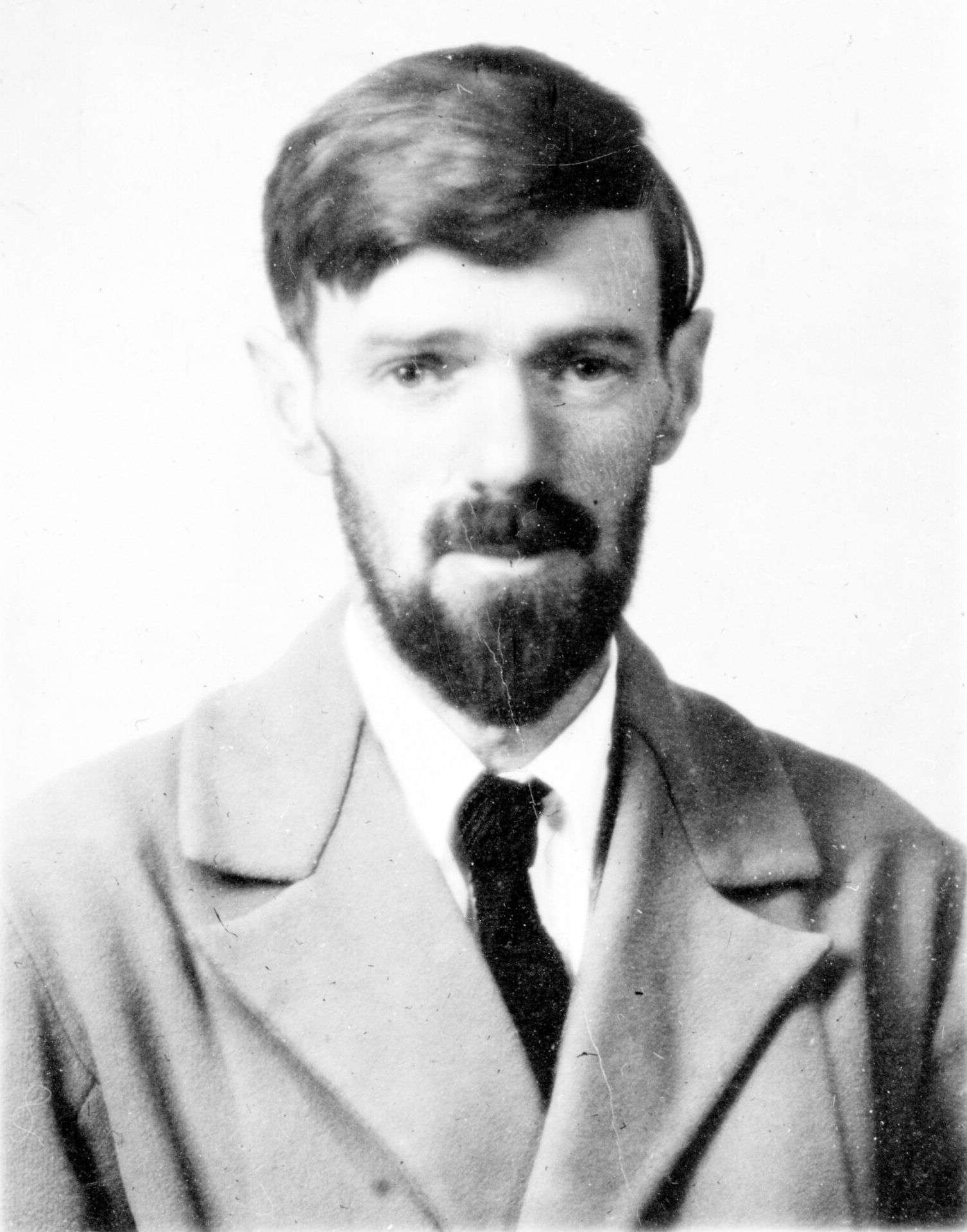 Ugh. Look at this guy. What a little prick.
Ugh. Look at this guy. What a little prick.Can we talk about how D.H. Lawrence has SEVEN works pn this list? Wtf. Does this not seem excessive, and not to mention a little biased? Who approved this, I swear. To make matters worse, I'm simply not a fan. Everything he writes just sounds like a rich white guy in a parlor filled with other identical men trying really hard to string together the best words to sound the most impressive. But, as I've signed up to this, here we go I guess.
The Fox is an unsettling little story that is heavy in symbolism in a way that makes it hard to take seriously. On top of that, Lawrence's voice is long winded and over-explained, and it gives him little credit for being an established writer. It feels like a first draft that didn't get much editing done, and that makes it rather disappointing. There is a lot of finesse in being subtle about your intentions in a story, and this story definitely did not even attempt that. Maybe it goes with the theme of following blindly with what you're told, because reading The Fox felt like I was pushed through doing something I didn't exactly want to do by a greater force. I did, however, appreciate March's strength as a heroin, and was also interested in one of the final thoughts about the level of one's happiness remaining constant, as it is something I have faced and thought a lot about lately, growing older. The author was 37 when this story was published though, so I guess what that tells me is that I only have more of the same to face as the years stack up.
Women in Love: What is even the point of this, and why is it so goddamn long? Here's D.H again, talking to himself and trying to prove how smart he is to no one in particular. At least The Fox had a plot but this one had none that I could detect, and the pointless conversations just kept going on and on and on. I started wondering whether Lawrence thinks women are intelligent, or evil, or both, because it's sure hard to tell. Men and women alike, his characters are extremely fickle, and yes, perhaps that is the true nature of people, but there is no way that anyone in the history of the world ever acted so ridiculously as these characters do. Lawrence's outlook on life seems incredibly miserable. Damn artists. This one took me months to read because I was basically fidgeting (literally) through every chapter, struggling to go on.
Dear god, 5 more of these horrible stories. Kill me now.
Saturday, September 19, 2015
Dracula
Epistolary novels usually aren't my favorite, but Dracula by Bram Stoker managed to keep me engaged quite well. There is something charming about a group of intellectual, kind men banding together to protect a lady (who also is quite smartly heroic), and though at times the author's voice did seem outdated on the "manliness" of other characters' heroism, it didn't bother me too much.
Dracula does seem like an incredibly weak enemy, and I wonder why such a villain was ever created. He seems more like a rat or some other such vermin rather than an equally matched foe. He scuttles around in the dark, has too many weaknesses to count, and can't even approach you when said weaknesses are brandished. It seems quite simple to keep yourself out of danger from him. Just don't invite him in your house, yo. I wonder why the townspeople around Transylvania never thought to attack him if they knew what it takes to keep him away. He does seem like a gentleman, though, so maybe they were being courteous.
It was another surprise to find that wolves were Dracula's friends in this story. Are they separate from werewolves, I wonder? So many random questions I have.
Anyway, this was a fun read, and is a solid classic. Seems like a nice, quick pick for some kind of exciting trip. Or, you know, for just rolling around inside your house, hiding from the sunshine like I did.
Dracula does seem like an incredibly weak enemy, and I wonder why such a villain was ever created. He seems more like a rat or some other such vermin rather than an equally matched foe. He scuttles around in the dark, has too many weaknesses to count, and can't even approach you when said weaknesses are brandished. It seems quite simple to keep yourself out of danger from him. Just don't invite him in your house, yo. I wonder why the townspeople around Transylvania never thought to attack him if they knew what it takes to keep him away. He does seem like a gentleman, though, so maybe they were being courteous.
It was another surprise to find that wolves were Dracula's friends in this story. Are they separate from werewolves, I wonder? So many random questions I have.
Anyway, this was a fun read, and is a solid classic. Seems like a nice, quick pick for some kind of exciting trip. Or, you know, for just rolling around inside your house, hiding from the sunshine like I did.
Friday, August 21, 2015
The Cement Garden
So. Fucked. Up.
Such creepy little children star in this novel and I feel like they violated me. The back cover of my copy says "Ian McEwan excavates the ruins of childhood and uncovers things that most adults have spent a lifetime forgetting -- or denying". Excuse me? MOST adults? What adults are out there hiding the fact that they shoved their dead relative in a cement casing and left them in the basement, while they touched their naked siblings in front of a six year old? And why is Jack such a fucking dick? Jesus christ, no consequences in this world of McEwan's, I tell you (yeah, yeah, I know, the end).
I'm thoroughly creeped out by McEwan now as I think back on all of the other books I've read by him. I feel like he has this weird thing with "naughty" children that's perverse and disturbing. With that said, there's still five (FIVE!?) books left on the list with his name on them. I feel like this is completely unfair of the list and totally biased, but hey, who am I to say.
I mean, I guess he did a good job writing an interesting story that successfully haunts you, but man, I want this book far away from me.
Such creepy little children star in this novel and I feel like they violated me. The back cover of my copy says "Ian McEwan excavates the ruins of childhood and uncovers things that most adults have spent a lifetime forgetting -- or denying". Excuse me? MOST adults? What adults are out there hiding the fact that they shoved their dead relative in a cement casing and left them in the basement, while they touched their naked siblings in front of a six year old? And why is Jack such a fucking dick? Jesus christ, no consequences in this world of McEwan's, I tell you (yeah, yeah, I know, the end).
I'm thoroughly creeped out by McEwan now as I think back on all of the other books I've read by him. I feel like he has this weird thing with "naughty" children that's perverse and disturbing. With that said, there's still five (FIVE!?) books left on the list with his name on them. I feel like this is completely unfair of the list and totally biased, but hey, who am I to say.
I mean, I guess he did a good job writing an interesting story that successfully haunts you, but man, I want this book far away from me.
Thursday, August 20, 2015
The Hours
Lovelovelovelovelovelove
I adore Michael Cunningham's The Hours. He writes in the female perspective in such a relatable way, it seems more honest a job than I could ever do as a woman myself. The Hours makes ordinary thoughts so tragic with an irresistibly everyday beauty. His voice was so effortlessly intimate that it felt like it was always me only, alone with and quietly guarding each character, sharing a profoundly close yet unnoticed (by them) interaction with them.
Not only does it stand by itself in its charm, but this book made me appreciate Woolf's Mrs. Dalloway in a way that I couldn't achieve on my own. That's skill, if I may. Cunningham seamlessly weaves plot points and themes from one narrative to the next, while echoing pages from Woolf's own novel, jarring personal memories of familiar yet distant pages. It causes a strange effort to interact with the story, activating personal uncertainties and deja vu, scanning your own mind for real or invented memories. On top of all that, Cunningham's ability to blend fact and fiction into one beautiful concoction wins trust somehow, inviting one to stay awhile and let go, soak it all in and steep in it.
Who hasn't at one time felt the desperation that Virginia, Clarissa, and Laura have felt? There is comfort in knowing that one is rather ordinary, after all.
I will most definitely be watching the film this weekend to keep my love affair for this one going.
I adore Michael Cunningham's The Hours. He writes in the female perspective in such a relatable way, it seems more honest a job than I could ever do as a woman myself. The Hours makes ordinary thoughts so tragic with an irresistibly everyday beauty. His voice was so effortlessly intimate that it felt like it was always me only, alone with and quietly guarding each character, sharing a profoundly close yet unnoticed (by them) interaction with them.
Not only does it stand by itself in its charm, but this book made me appreciate Woolf's Mrs. Dalloway in a way that I couldn't achieve on my own. That's skill, if I may. Cunningham seamlessly weaves plot points and themes from one narrative to the next, while echoing pages from Woolf's own novel, jarring personal memories of familiar yet distant pages. It causes a strange effort to interact with the story, activating personal uncertainties and deja vu, scanning your own mind for real or invented memories. On top of all that, Cunningham's ability to blend fact and fiction into one beautiful concoction wins trust somehow, inviting one to stay awhile and let go, soak it all in and steep in it.
Who hasn't at one time felt the desperation that Virginia, Clarissa, and Laura have felt? There is comfort in knowing that one is rather ordinary, after all.
I will most definitely be watching the film this weekend to keep my love affair for this one going.
Sunday, August 9, 2015
Thursbitch
After a long and empty novel, a short but powerful one.
What a haunting little book Thursbitch by Alan Garner is. The narrative is melodic, with a darkness that hangs over you like a heavy blanket. The story alternates between two timelines; Jake Turner's in the 1700s, and a more modern one, both set in Thursbitch, a mysterious English valley. The dialect in the former narrative is a bit hard to understand as it is an old regional English that sounds a bit Irish to me (forgive me for my ignorance), and as the book opens with Turner's story, I was at first wary to embrace the book. But Garner's ability to weave plotlines from past to present had a refreshing outcome that kept the story from becoming too tiresome, and had me more and more engaged as the pages were turned.
A bit of fantasy and plenty of drama, the book is less of a mystery as I first thought it would be, than an updated folktale. The transformation of Turner from a loving husband to a raving madman is emotional and beautiful, and the stillness of the landscape is a powerful contrast to this. Artfully done.
What a haunting little book Thursbitch by Alan Garner is. The narrative is melodic, with a darkness that hangs over you like a heavy blanket. The story alternates between two timelines; Jake Turner's in the 1700s, and a more modern one, both set in Thursbitch, a mysterious English valley. The dialect in the former narrative is a bit hard to understand as it is an old regional English that sounds a bit Irish to me (forgive me for my ignorance), and as the book opens with Turner's story, I was at first wary to embrace the book. But Garner's ability to weave plotlines from past to present had a refreshing outcome that kept the story from becoming too tiresome, and had me more and more engaged as the pages were turned.
A bit of fantasy and plenty of drama, the book is less of a mystery as I first thought it would be, than an updated folktale. The transformation of Turner from a loving husband to a raving madman is emotional and beautiful, and the stillness of the landscape is a powerful contrast to this. Artfully done.
Wednesday, August 5, 2015
Celestial Harmonies
Oh man. This was a struggle for me. It literally felt like I was sitting with a stranger for months on end listening to his personal stories, but never once got any closer to knowing who he is as a person or anything substantial about his past even though that is literally all he talked about. I expected to come out of this experience at least gaining some history on Hungarian nobility, but even that was a bust. How could I have gotten so little from 841 pages!?
I don't even know what to say. There seem to be about 5 people on GoodReads who had a good time reading this book, but they (besides one guy who has his own reasons) offer no reasons why except for vague sentences that seem like they don't really know what they're talking about and just want to look like they appreciate a notable book.
What baffles me is that this is a modern work. It reads like it was written a hundred years ago, despite the "contemporary" style of writing.
Do I recommend this? Nope, definitely not for someone with my taste in literature. Do I regret the months I spent reading it with no joy to show for it? I guess all I can say to that is "Look at my willpower to finish this list". Peter Esterhazy, you're just another notch in my bookshelf.
I don't even know what to say. There seem to be about 5 people on GoodReads who had a good time reading this book, but they (besides one guy who has his own reasons) offer no reasons why except for vague sentences that seem like they don't really know what they're talking about and just want to look like they appreciate a notable book.
What baffles me is that this is a modern work. It reads like it was written a hundred years ago, despite the "contemporary" style of writing.
Do I recommend this? Nope, definitely not for someone with my taste in literature. Do I regret the months I spent reading it with no joy to show for it? I guess all I can say to that is "Look at my willpower to finish this list". Peter Esterhazy, you're just another notch in my bookshelf.
Thursday, May 14, 2015
Nancy Mitford
The Pursuit of Love: Fast, merry, and delightful. The entire story reads like a friend gossiping to you, without becoming trite in any way. Though it took place during wartime, the tone consistently stayed bright throughout, and delivered plenty of humor to keep me engaged as I sped through every sentence. The contrast between the narrator and Linda was just right, too, I think, and I really do think that Mitford is a very engaging storyteller. This is very much a woman's novel, and I could imagine it to be the equivalent of chick lit today in its day, but it's in no way a guilty read. The way it ended! Hilarious! "The doctors who said that Linda ought never to have another child were not such idiots after all. It killed her." Bam. She died. So to the point out of nowhere when the whole story was about her. So randomly brilliant, I'm still recovering.
Love in a Cold Climate: If Linda is a whirlwind, Polly is a stone. Unlike the Alconleighs, who were so personable and warm, the Montdores are distant and chilly. With The Pursuit of Love, I felt drawn in and included, whereas with Love in a Cold Climate I felt distant and a bit melancholy. It felt, too, a bit older (matured), like our eyes were opened to the truth whereas in Linda's story we were all (quite obviously) blinded by youth and romance. Mitford's wit was still there, and there were spells of humor from the first story that would occasionally peek out, winking at you, but altogether, the two are very different stories curiously spanning the same periods. With Lady Matdores' superficiality, however, Cold Climate felt a little more mainstream to stories of aristocracy, and therefore slightly less original.
The biggest mystery to me though, is why everyone loves Davey so much, and seriously, how isn't he gay?
Love in a Cold Climate: If Linda is a whirlwind, Polly is a stone. Unlike the Alconleighs, who were so personable and warm, the Montdores are distant and chilly. With The Pursuit of Love, I felt drawn in and included, whereas with Love in a Cold Climate I felt distant and a bit melancholy. It felt, too, a bit older (matured), like our eyes were opened to the truth whereas in Linda's story we were all (quite obviously) blinded by youth and romance. Mitford's wit was still there, and there were spells of humor from the first story that would occasionally peek out, winking at you, but altogether, the two are very different stories curiously spanning the same periods. With Lady Matdores' superficiality, however, Cold Climate felt a little more mainstream to stories of aristocracy, and therefore slightly less original.
The biggest mystery to me though, is why everyone loves Davey so much, and seriously, how isn't he gay?
Saturday, May 2, 2015
Kafka on the Shore
Another Murakami. The most popular, as far as I'm concerned, but to me, the least satisfactory. The entire novel felt disconnected, like I was set on a treadmill at walking pace, without any goal in sight. At least in his previous novels there was some sort of goal to be worked after. As expected, the story quietly ended with no resolution or really any attempt at sense.
I'm not sure if this reaction is due to the fact that I've read so many of his books now and am tired of his style, or that Kafka really was a lackluster work. Sure, some of the characters were interesting and likable, but it was hard to care about anything happening at all. It feels more like I was introduced to them for a brief period, and now will forget them all without effort. And "The Boy Named Crow" was really just annoying, and made no sense to me. If you're going to personify the conscience, do it with purpose. I'd like to know what Murakami's intent in writing all of these stories are. Maybe he's like Miss Saeki in this story, writing for no one and no reason.
Per usual, the world of Murakami in Kafka was muted and quiet. Lack of feeling, but uneasy, like a surrealist painting. This feeling bleeds into real life when I read his writing, so now that it's spring, maybe I'm glad that I'm through with his books. At least for a while.
I'm not sure if this reaction is due to the fact that I've read so many of his books now and am tired of his style, or that Kafka really was a lackluster work. Sure, some of the characters were interesting and likable, but it was hard to care about anything happening at all. It feels more like I was introduced to them for a brief period, and now will forget them all without effort. And "The Boy Named Crow" was really just annoying, and made no sense to me. If you're going to personify the conscience, do it with purpose. I'd like to know what Murakami's intent in writing all of these stories are. Maybe he's like Miss Saeki in this story, writing for no one and no reason.
Per usual, the world of Murakami in Kafka was muted and quiet. Lack of feeling, but uneasy, like a surrealist painting. This feeling bleeds into real life when I read his writing, so now that it's spring, maybe I'm glad that I'm through with his books. At least for a while.
Sunday, April 12, 2015
One Hundred Years of Solitude
Simultaneously light, heavy, magical, realistic, playful, melancholy, and impeccably thoughtful, One Hundred Years of Solitude by Gabriel Garcia Marquez is one that had me feeling things for a fictional family that is hard to believe is achievable. Somewhere between the story of however-many Buendia generations, I became part of the family...or maybe, one among many ghosts living in the house.
I am an absolute sucker for nostalgia and the way that Marquez treated this theme is remarkable. With the use of the same 4-5 set of names used over and over, he created an experience where one is not simply being told the story, but rather being forced to remember along with the rest of the characters. The events and emotions within the story become the reader's memories, and as the characters recall the past, so do you. I seriously grew nostalgic for deceased characters when they were mentioned at the end. I mean, come on.
There were, at times, moments where I became tired of the repetitious themes, as I'm sure is expected, but at the final turn of the page, I am left completely enchanted with every aspect of the little village of Macondo's (wherever it's supposed to be, because I'm still not sure) history and the people within it. I mean it; do not falter, just keep reading. It's the in kind of book that makes you want to live.
I am an absolute sucker for nostalgia and the way that Marquez treated this theme is remarkable. With the use of the same 4-5 set of names used over and over, he created an experience where one is not simply being told the story, but rather being forced to remember along with the rest of the characters. The events and emotions within the story become the reader's memories, and as the characters recall the past, so do you. I seriously grew nostalgic for deceased characters when they were mentioned at the end. I mean, come on.
There were, at times, moments where I became tired of the repetitious themes, as I'm sure is expected, but at the final turn of the page, I am left completely enchanted with every aspect of the little village of Macondo's (wherever it's supposed to be, because I'm still not sure) history and the people within it. I mean it; do not falter, just keep reading. It's the in kind of book that makes you want to live.
Saturday, March 14, 2015
Sputnik Sweetheart
More Murakami! There's another one to go, but don't worry, I'm going to take a break before I go on to that one.
I like Sputnik Sweetheart the most out of the three Haruki Murakami books I've read so far, I think. I'm not sure if it was because the translation was done by someone else (Philip Gabriel - the first two were by Jay Rubin), or if Murakami actually wrote in a different style relative to the personality of the characters, but this novel read in a much more welcoming, casual vibe. It's still surreal, but stays on topic more than his other works, with a clear plot and more importantly, the characters seem to have true feelings.
The fact that one of the main characters is a lesbian, too, gives a refreshing modern angle to the book. Even now, I don't think characters such as Sumire exist very often in culture in patriarchal Japan which made it all the more enjoyable to see a free-spirited, "hipster" girl amid the frigid, mechanical women of Murakami's usual worlds. This misfit quality gave her even more life, in a way that I don't think I would really have appreciated had I not read the author's other works beforehand.
The loneliness of existence seems to be a common theme in Murakami's works, but its clear that it isn't something he's trying to solve or explain. It feels more like he's simply inviting you into a friendly (mostly one-sided) conversation for a few minutes to gage your reaction. Maybe you'll quietly listen, or maybe even agree with him - I think that's what would give him the most pleasure.
I like Sputnik Sweetheart the most out of the three Haruki Murakami books I've read so far, I think. I'm not sure if it was because the translation was done by someone else (Philip Gabriel - the first two were by Jay Rubin), or if Murakami actually wrote in a different style relative to the personality of the characters, but this novel read in a much more welcoming, casual vibe. It's still surreal, but stays on topic more than his other works, with a clear plot and more importantly, the characters seem to have true feelings.
The fact that one of the main characters is a lesbian, too, gives a refreshing modern angle to the book. Even now, I don't think characters such as Sumire exist very often in culture in patriarchal Japan which made it all the more enjoyable to see a free-spirited, "hipster" girl amid the frigid, mechanical women of Murakami's usual worlds. This misfit quality gave her even more life, in a way that I don't think I would really have appreciated had I not read the author's other works beforehand.
The loneliness of existence seems to be a common theme in Murakami's works, but its clear that it isn't something he's trying to solve or explain. It feels more like he's simply inviting you into a friendly (mostly one-sided) conversation for a few minutes to gage your reaction. Maybe you'll quietly listen, or maybe even agree with him - I think that's what would give him the most pleasure.
Friday, March 6, 2015
After the Quake
After obsessing over The Wind-Up Bird Chronicle, I binge bought all of the Murakami titles on the 1001 list. As the books I've ordered trickle in, I started on After the Quake. It is a collection of 6 short stories with minor ties to the 1995 Kobe earthquake.
The first story, ufo in kushiro, was so similar to Wind-Up Bird that my initial reaction to the collection was a tired disappointment. However, as the other stories opened up, I was happy to see that Murakami does clearly have creativity beyond one story line and has a talent for evoking wonder with mysterious fantasy-like scenarios.
It's hard not to think of the Fukushima earthquake and tsunami in 2015 while reading about lives affected by a large scale disaster in Japan. You don't really think about how such an event affects people who are indirectly tied to it, and Murakami does this in a crafty way that makes you think. None of his characters have suffered the loss of a loved one by the earthquake, but all of their buried pasts are brought to the surface in haunting ways.
I think part of the strangeness in Murakami's writing is that all of his characters never seem fundamentally Japanese. Any references to brand names, literature, and culture is always reflective of Western culture. Even the food that they eat is European/American (why is it always spaghetti??). I'd be interested to read it in the original language to see if it translates differently, although unfortunately my skills with Japanese text are not so advanced.
In relation to that, one thing that bothers me is the use of the phrase "don't let it bother you too much" that gets used constantly in Jay Rubin's translations of the female characters in Murakami's books. I don't know what the original Japanese term was from which it came, but this particular choice of words bothers me. It seems to cold and unapologetic, something that I can't imagine creeping in to Japanese speech as often as it does in these stories. But then again, I guess women are cold enough in Murakami's world to constantly be disappearing/leaving in. I wonder if it reflects on his personal life.
The first story, ufo in kushiro, was so similar to Wind-Up Bird that my initial reaction to the collection was a tired disappointment. However, as the other stories opened up, I was happy to see that Murakami does clearly have creativity beyond one story line and has a talent for evoking wonder with mysterious fantasy-like scenarios.
It's hard not to think of the Fukushima earthquake and tsunami in 2015 while reading about lives affected by a large scale disaster in Japan. You don't really think about how such an event affects people who are indirectly tied to it, and Murakami does this in a crafty way that makes you think. None of his characters have suffered the loss of a loved one by the earthquake, but all of their buried pasts are brought to the surface in haunting ways.
I think part of the strangeness in Murakami's writing is that all of his characters never seem fundamentally Japanese. Any references to brand names, literature, and culture is always reflective of Western culture. Even the food that they eat is European/American (why is it always spaghetti??). I'd be interested to read it in the original language to see if it translates differently, although unfortunately my skills with Japanese text are not so advanced.
In relation to that, one thing that bothers me is the use of the phrase "don't let it bother you too much" that gets used constantly in Jay Rubin's translations of the female characters in Murakami's books. I don't know what the original Japanese term was from which it came, but this particular choice of words bothers me. It seems to cold and unapologetic, something that I can't imagine creeping in to Japanese speech as often as it does in these stories. But then again, I guess women are cold enough in Murakami's world to constantly be disappearing/leaving in. I wonder if it reflects on his personal life.
Wednesday, March 4, 2015
Mrs. Dalloway
I knew nothing about Virginia Woolf save the fame of her name a week ago, and I must admit, after reading what Google pointed to as the easiest to read for Woolf beginners; Mrs. Dalloway, I still don't have a clear understanding of what she's supposed to represent.
What to say? The novel is incredibly fluid, changing from one character's point of view to the next's with the theatrical style of a camera swinging in one seamless move. It's remarkable, really, as you hardly realize it's happening until it has, and your mind has to play catch-up.
The fact that the main characters are elderly came as a shock to me as well. It so rarely happens, and even less so when it relates to the bourgeois and events like fancy dinner parties. I must say the fact that my book's cover had a photograph of ladies in their twenties did not help the matter.
I enjoyed the moments shared between Peter and Sally best. And though I cannot say I was especially pulled by the novel as a whole, the final section was provoking. I like the draw of the past, and the reality of emotions vs. rationality in fiction because one cannot really experience that of other people in real life. Life choices...am I right?
What to say? The novel is incredibly fluid, changing from one character's point of view to the next's with the theatrical style of a camera swinging in one seamless move. It's remarkable, really, as you hardly realize it's happening until it has, and your mind has to play catch-up.
The fact that the main characters are elderly came as a shock to me as well. It so rarely happens, and even less so when it relates to the bourgeois and events like fancy dinner parties. I must say the fact that my book's cover had a photograph of ladies in their twenties did not help the matter.
I enjoyed the moments shared between Peter and Sally best. And though I cannot say I was especially pulled by the novel as a whole, the final section was provoking. I like the draw of the past, and the reality of emotions vs. rationality in fiction because one cannot really experience that of other people in real life. Life choices...am I right?
Thursday, February 26, 2015
The Wind-Up Bird Chronicle
I have been avoiding Murakami for the past 6-7 years now, ever since I noticed it becoming so prominently featured in American bookstores for that simple fact alone. Having finally read one now, I can honestly say that the decision I had been making was a stupid one.
It has been a very long time since I have been so engaged in a book. I felt sincerely sorry as the pages in my right hand grew fewer in number, but yet propelled to continue further and to let the story continue. Simply speaking, I loved the experience I had with this book. So much so, that although I have other books to start ready to go, I may just go to the book store and buy more Murakami novels in order to feed this new passion that has been lit within me.
The Wind-Up Bird Chronicle is surreal in a way that stands out from other stories that might be compared to it. Murakami is able to manipulate emotion in a way that I have rarely experienced before in reading: there are parts that are incredibly graphic and grotesque, yet simultaneously warmly enveloping. In the same way, there are other parts that are beautifully poetic yet cause an emotional discomfort that is hard to describe.
Almost all of Murakami's characters are chatty. This is another unusual way in which the author builds the novel. We learn the stories of each character from their own words, simply because they all tend to overshare while getting to the point of something completely off-topic. As far as I'm concerned, I have never experienced a writing style like this before, and as a writer who struggles with dialogue, I admire it.
My only regret is that the story did not end with a clear wrap-up of the countless number of loose threads presented throughout the book. In the end, Murakami chose not to approach reason, but somehow it did not offend me in the way that other books do when they leave plot holes unfilled. Like the tentacles of the jellyfish that Toru Okada so feared, all of the questions I had built up remained gently swaying in the dark with ominous mystery. Somehow, though, it just worked.
It has been a very long time since I have been so engaged in a book. I felt sincerely sorry as the pages in my right hand grew fewer in number, but yet propelled to continue further and to let the story continue. Simply speaking, I loved the experience I had with this book. So much so, that although I have other books to start ready to go, I may just go to the book store and buy more Murakami novels in order to feed this new passion that has been lit within me.
The Wind-Up Bird Chronicle is surreal in a way that stands out from other stories that might be compared to it. Murakami is able to manipulate emotion in a way that I have rarely experienced before in reading: there are parts that are incredibly graphic and grotesque, yet simultaneously warmly enveloping. In the same way, there are other parts that are beautifully poetic yet cause an emotional discomfort that is hard to describe.
Almost all of Murakami's characters are chatty. This is another unusual way in which the author builds the novel. We learn the stories of each character from their own words, simply because they all tend to overshare while getting to the point of something completely off-topic. As far as I'm concerned, I have never experienced a writing style like this before, and as a writer who struggles with dialogue, I admire it.
My only regret is that the story did not end with a clear wrap-up of the countless number of loose threads presented throughout the book. In the end, Murakami chose not to approach reason, but somehow it did not offend me in the way that other books do when they leave plot holes unfilled. Like the tentacles of the jellyfish that Toru Okada so feared, all of the questions I had built up remained gently swaying in the dark with ominous mystery. Somehow, though, it just worked.
Sunday, February 15, 2015
Detour: Of Things Gone Astray
I went to the bookstore yesterday with the intent of buying some books from the list, but having only been able to find 2 of the 3 I was seeking, I picked up a new book which I honestly just chose based on looks.
Of Things Gone Astray by Janina Matthewson, in a very one-dimensional view, is written in a generically "new fiction" way that is so common now in artsy hipster-indie fiction. "Strangers" simultaneously have a traumatic experience happen to them, and their stories become interwoven without their directly knowing it. It has that very attractive, melancholy tone that I am drawn to, that lends itself to fantasy similar to The Boy Detective Fails by Joe Meno.
The beginning of the book, though enjoyable, honestly did not find me very impressed. It felt familiarly sugary to me in a way that reminded me of my own writing. As the story progressed however, certain moments of sweetness and creativity revealed themselves in rather impressive (for lack of a better term) ways. It is a quiet, emotional book with extremely likable characters.
Personally, it was a good weekend to be reminded that things get lost and found all the time, but life keeps going on. You must keep living it, you know?
Of Things Gone Astray by Janina Matthewson, in a very one-dimensional view, is written in a generically "new fiction" way that is so common now in artsy hipster-indie fiction. "Strangers" simultaneously have a traumatic experience happen to them, and their stories become interwoven without their directly knowing it. It has that very attractive, melancholy tone that I am drawn to, that lends itself to fantasy similar to The Boy Detective Fails by Joe Meno.
The beginning of the book, though enjoyable, honestly did not find me very impressed. It felt familiarly sugary to me in a way that reminded me of my own writing. As the story progressed however, certain moments of sweetness and creativity revealed themselves in rather impressive (for lack of a better term) ways. It is a quiet, emotional book with extremely likable characters.
Personally, it was a good weekend to be reminded that things get lost and found all the time, but life keeps going on. You must keep living it, you know?
Monday, February 2, 2015
The Brothers Karamazov
It felt like an irrationally long time that it took me to read this book, but having gone back and seen my last post, I see it has only been the duration of 3 months. Long, yes, but not the eternity it seemed.
I have read Dostoevsky before, albeit in high school, and in comparison, this one felt so much more humorous and playful. Of course, it may just be that the in my youth I was too inexperienced with literature (not to mention so emo) to understand the subtleties of the writer's wordsmithing, or it may even have been the fault of whatever translator's rendition of Crime and Punishment that I experienced, but the cold and harsh story that I remember in that case is something of a completely different world compared to this edition of The Brothers. It is important to note here, that this copy in question was translated by Richard Pevear and Larissa Volokhonsky whom I have raved about before.
In short, I found it delightful that there could be so much "fun" in a russian murder mystery (for lack of a better term). It felt a bit like self-deprecation of Dostoevsky's own genre, while also challenging so much of what would be commonplace like religion and devotion (in all respects). And oh, the drama. If only we could be so outwardly passionate and yet fickle in our daily lives and fall into fits as often, maybe we would all be a little less uptight.
I must say, I could have done with the speeches being cut to a third of what they were though. I know, I know, it's Russian literature. I stand my ground. Especially when there wasn't a single mention of snow in 776 pages.
I have read Dostoevsky before, albeit in high school, and in comparison, this one felt so much more humorous and playful. Of course, it may just be that the in my youth I was too inexperienced with literature (not to mention so emo) to understand the subtleties of the writer's wordsmithing, or it may even have been the fault of whatever translator's rendition of Crime and Punishment that I experienced, but the cold and harsh story that I remember in that case is something of a completely different world compared to this edition of The Brothers. It is important to note here, that this copy in question was translated by Richard Pevear and Larissa Volokhonsky whom I have raved about before.
In short, I found it delightful that there could be so much "fun" in a russian murder mystery (for lack of a better term). It felt a bit like self-deprecation of Dostoevsky's own genre, while also challenging so much of what would be commonplace like religion and devotion (in all respects). And oh, the drama. If only we could be so outwardly passionate and yet fickle in our daily lives and fall into fits as often, maybe we would all be a little less uptight.
I must say, I could have done with the speeches being cut to a third of what they were though. I know, I know, it's Russian literature. I stand my ground. Especially when there wasn't a single mention of snow in 776 pages.
Subscribe to:
Posts (Atom)
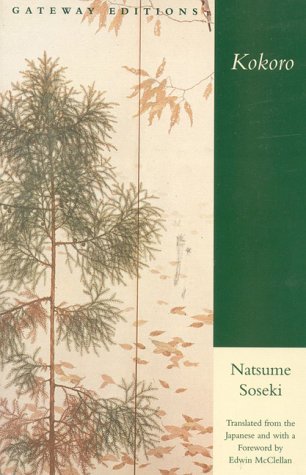
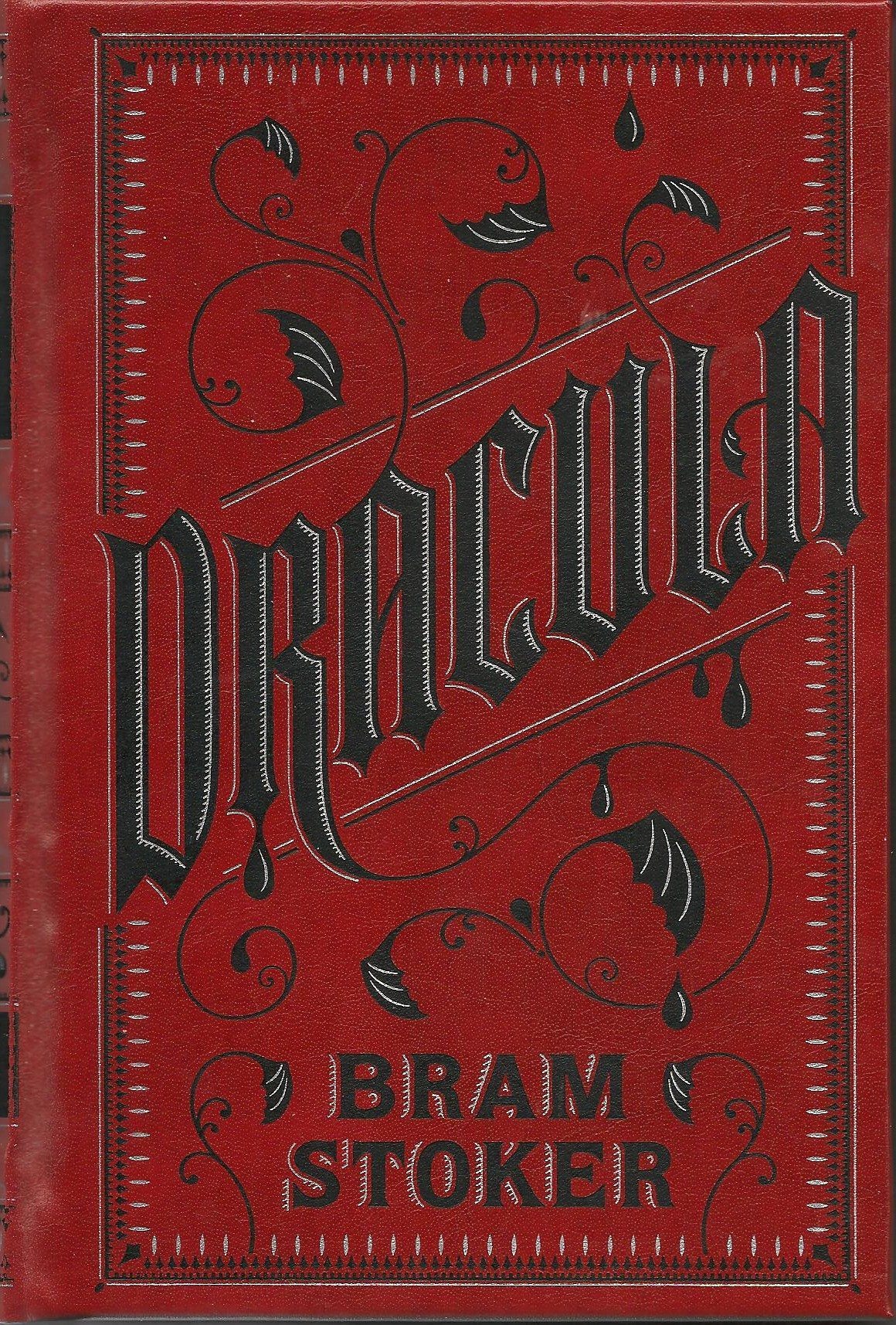


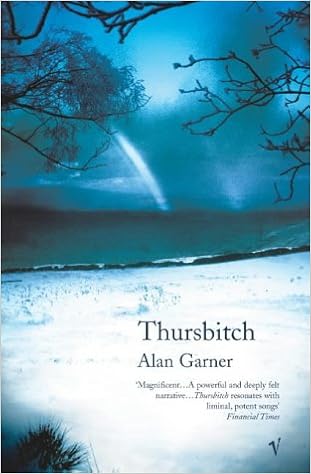
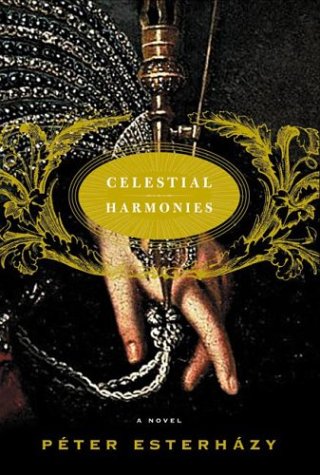
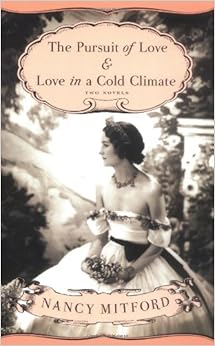

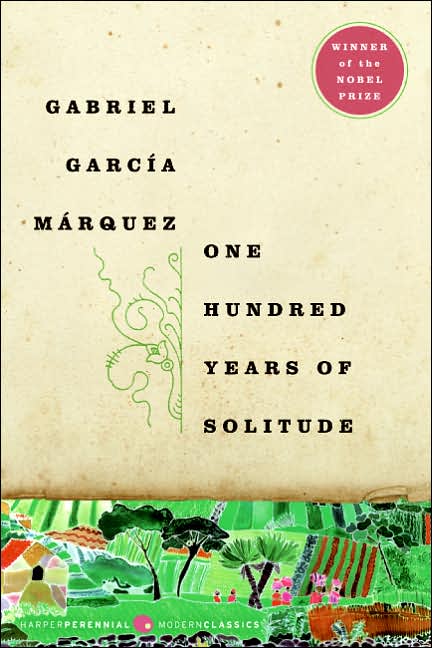



Paper.jpg)
